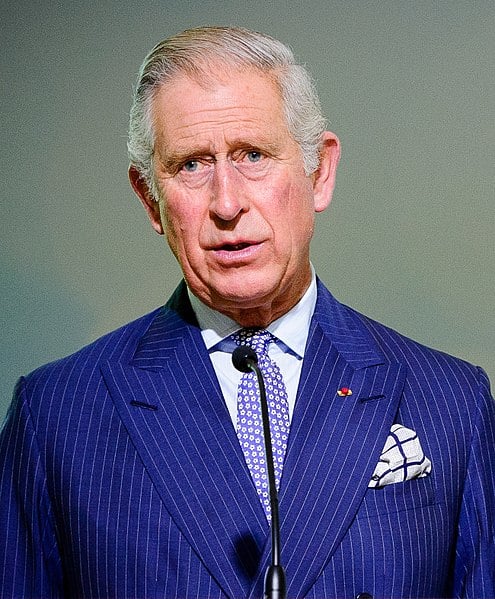Friday, Commonwealth leaders voted to make Prince Charles the next British Commonwealth head.
Thursday, Queen Elizabeth II, formally endorsed her son as her successor to leading the British Commonwealth. She asked Commonwealth leaders to vote for Charles, Prince of Wales, as the next leader of the Commonwealth of Nations.
Leading the Commonwealth is not a hereditary role and is separate from ascension to the British throne, which does follow a hereditary line of succession. As Queen Elizabeth’s first born, Charles is expected to inherit the throne upon her death.
Queen Elizabeth’s Support
Speaking at Buckingham Palace at the Commonwealth Heads of Government Meeting on Thursday, the Queen confirmed her desire to see her son ascend as Commonwealth head. She said, “It is my sincere wish that the Commonwealth will continue to offer stability and continuity for future generations and will decide that one day the Prince of Wales should carry on the important work started by my father in 1949.”
The monarch went on to say, “By continuing to treasure and reinvigorate our associations and activities, I believe we will secure a safer, more prosperous and sustainable world for those who follow us: a world where the Commonwealth’s generosity of spirit can bring its gentle touch of healing and hope to all.”
The leaders of the Commonwealth countries then discussed whether they would accept Prince Charles as Commonwealth head behind closed doors at Buckingham Palace. It has long been speculated by many that Charles may be passed over, in favor of his more popular son, Prince William. Other’s believed the role might be passed on to one of the leaders of the Commonwealth nations and be rotated among the 53 leaders afterwards. The decision to vote Prince Charles in as Commonwealth head needed to be unanimous and was expected to face some resistance.
Words from Prince Charles
Prince Charles gave opening remarks to the Commonwealth of Nations meeting:
“For my part, the Commonwealth has been a fundamental feature of my life for as long as I can remember, beginning with my first visit to Malta when I was just 5 years old.
“And so, Ladies and Gentlemen, I pray that this Commonwealth Heads of Government Meeting will not only revitalize the bonds between our countries, but will also give the Commonwealth a renewed relevance to all citizens, finding practical solutions to their problems and giving life to their aspirations.
“By doing so, the Commonwealth can be a cornerstone for the lives of future generations, just as it has been for so many of us.”
Endorsed by World Leaders
A spokesperson for British Prime Minister Theresa May confirmed May’s support for Prince Charles as the next Commonwealth head:
He has been a proud supporter of the Commonwealth for more than four decades and has spoken passionately about the organization’s unique diversity. Succession is a matter for the Commonwealth as a whole to determine.
Canadian Prime Minister Justin Trudeau also gave his support to Prince Charles earlier this week.
Joseph Muscat, Prime Minister of Malta and outgoing chair of the Commonwealth is believed to have been instrumental in garnering support for Prince Charles. Prime Minister Muscat said:
“We are equally elated by the vigour with which His Royal Highness the Prince of Wales actively participates in Commonwealth affairs and puts a strong Commonwealth dimension in his various national and global initiatives.
“We are certain that when he will be called upon to do so, he will provide solid and passionate leadership for our Commonwealth.”
What is the Commonwealth?
The Commonwealth of Nations, previously known as the British Commonwealth, is a union of 53 countries, mostly former colonies of the British Empire. Nations in the Commonwealth span the globe and include countries as diverse as India, Australia, Canada, and Kenya. Nearly 2.5 billion people inhabit the Commonwealth nations, almost 1/3rd of the earth’s population. In 16 of these countries, Queen Elizabeth is considered the head of state. The Commonwealth also makes up 1/4th of the world’s territory.
The Commonwealth of Nations has been an institution since 1931, but it is not without its critics. The British Commonwealth is often criticized as a painful artifact of Britain’s colonial past and an opulent bureaucratic nightmare. Other critics insist the Commonwealth has no clear purpose, but does waste an enormous amount of money.
Some claim Britain mistreats migrants from other Commonwealth nations, while still expecting the full support of their respective countries, reinforcing the feeling of colonialism that still pervades the Commonwealth. Many countries in the Commonwealth do not share the same respect for women’s rights, LGBT+ people, or human rights. Britain has drawn criticism for not doing enough to ensure human rights are respected across the Commonwealth. Those in wealthier nations like Australia and Canada believe their governments are asked to contribute too much financially compared to less developed countries. Despite these criticisms, in a post-Brexit world, Britain may turn to the Commonwealth of Nations for trade opportunities and to leverage itself as global power.
The role of Commonwealth head has also been criticized as being mostly symbolic and impotent, although it does require frequent visits to Commonwealth countries. In recent years, Prince Charles made many highly publicized visits to Commonwealth partners, which was seen as a part of a coordinated push to ensure he would eventually be voted into position of Commonwealth head. Critics had hoped the passing of Queen Elizabeth would open up opportunities for non-royal, non-British leadership. Instead they see the election of Prince Charles as reinforcing the “Anglocentric” nature and colonial past of the British Commonwealth.
Commonwealth leaders met in the UK this week to discuss pressing topics such as cybersecurity, trade, and conservationism, as well as the queen’s possible successor. Queen Elizabeth will continue to lead the Commonwealth until her death. The queen, who assumed the throne in 1952, turns 92 on Saturday. Commonwealth summits are usually held every two years. It is expected that Thursday will be the last time the queen addresses the Commonwealth.




